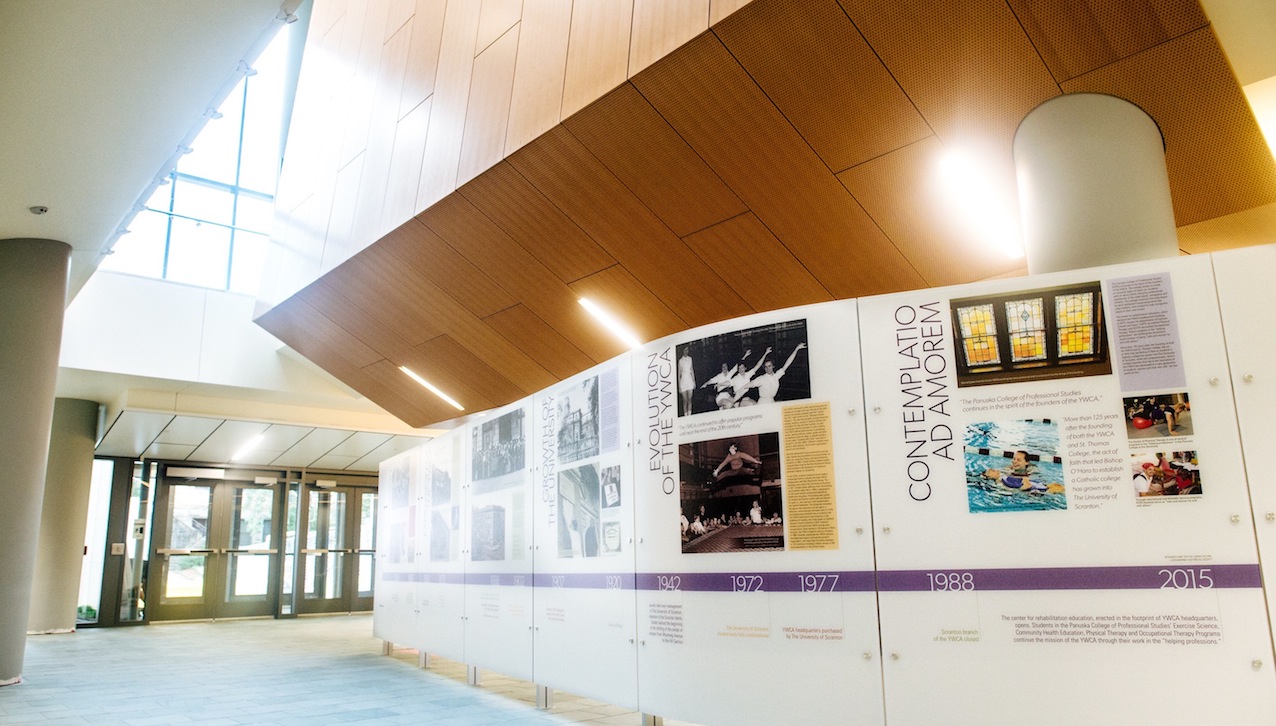Scranton Recognized for Sustainable Initiatives

Scranton Recognized for Sustainable Initiatives
The University of Scranton is among most “green” colleges in the nation, according to The Princeton Review.
Scranton was listed in in the 2017 edition of Princeton Review’s “Guide to 375 Green Colleges,” which profiles colleges with the most exceptional commitments to sustainability based on their academic offerings and career preparation for students, campus policies, initiatives and activities.
The Princeton Review chose the colleges based on their “Green Rating” scores from their survey of school administrators for their “Best Colleges” guidebook. The survey asked schools to report on their “sustainability-related policies, practices and programs.”
Scranton’s long-established sustainability efforts include academics, physical plant and community education and outreach. Scranton has infused issues of sustainability in courses across the curriculum, ranging from theology, to business, to the natural sciences, to education, as well as other disciplines. Scranton uses numerous “green” procedures in building maintenance practices, as well as in building design and construction. Scranton currently has three Leadership in Energy and Environmental Design (LEED) certified buildings: Leahy Hall, the Loyola Science Center and the DeNaples Center, which became the city’s first LEED certified structure in 2008. The University also conducts multiple community educational programs organized through its Office of Sustainability, which include a community garden, an Earth Day Essay Contest, an Earth Day Fair and an Evening of Environmental Science program for area children and families.
In addition to its “Guide to 375 Green Colleges,” The Princeton Review listed Scranton in its “Best Colleges” guidebooks for 16 consecutive years, ranking Scranton in its 2018 edition among the nation’s “Best Science Labs” (No. 9), “Best Campus Food” (No. 15), “Everyone Plays Intramural Sports” (No. 18) and “Most Religious Students” (No. 20).
The University of Scranton’s long-established sustainability include the infusion of issues of sustainability in courses across its curriculum, ranging from theology, to business, to the natural sciences, to education, as well as other disciplines. Scranton also has three Leadership in Energy and Environmental Design (LEED) certified buildings: Leahy Hall, the Loyola Science Center and the DeNaples Center, which became the city’s first LEED certified structure in 2008.
The University of Scranton’s long-established sustainability include the infusion of issues of sustainability in courses across its curriculum, ranging from theology, to business, to the natural sciences, to education, as well as other disciplines. Scranton also has three Leadership in Energy and Environmental Design (LEED) certified buildings: Leahy Hall, the Loyola Science Center and the DeNaples Center, which became the city’s first LEED certified structure in 2008.






